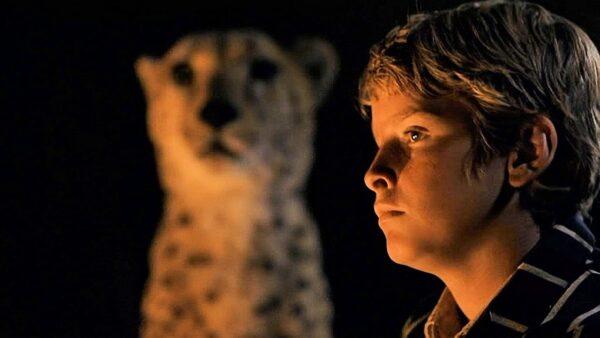
Alexander Michaletos as Xan and the cheetah in "Duma." Warner Bros.
During his 40-year filmmaking career, retired director Carroll Ballard choose the great outdoors as the settings for all but one (“Nutcracker: The Movie”) of his eight movies, including two Vietnam War-era documentaries (“Beyond This Winter’s Wheat” and “Harvest”) commissioned and produced by the U.S. Information Agency.





